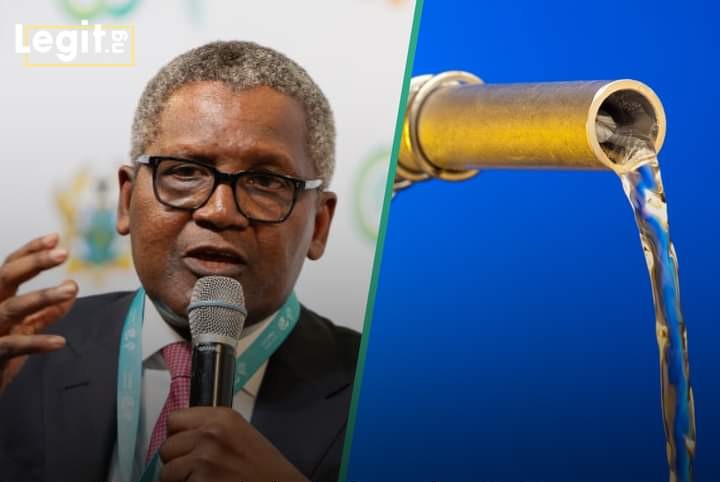The Federal Government is reportedly considering granting Aliko Dangote’s refinery the authority to set the price of Premium Motor Spirit (PMS), commonly known as petrol, starting in October.
Nigerians have been grappling with a prolonged scarcity of petrol for weeks, with no immediate resolution in sight. This situation worsened on Tuesday when the Nigerian National Petroleum Company Limited (NNPCL) raised the pump price of PMS.
According to a Bloomberg report released on Thursday, sources confirmed that the government is weighing the option of allowing Dangote’s refinery to set the price at which it sells petrol to marketers.
“Nigeria will allow Dangote to set the price of gasoline for petroleum marketers starting next month,” an anonymous source told the publication. “Moving forward, petrol marketers will be able to purchase directly from the Dangote Refinery.”
Temitope Ajayi, Senior Special Assistant to the President on Media and Publicity, confirmed to Bloomberg that Dangote’s refinery would not sell petrol below market value.
“Dangote Refinery, as a profit-driven business, will not sell its products below market price. I don’t foresee the NNPC or the federal government controlling the price set by a private enterprise,” Ajayi said. He added that the role of the petroleum regulator will be to ensure product quality and fair pricing, preventing exploitation of citizens.
On Tuesday, Aliko Dangote, Chairman of Dangote Industries Limited, officially presented the first sample of petrol produced at his refinery. He announced that his facility is capable of meeting not only Nigeria’s fuel demands but also those of sub-Saharan Africa.
He also revealed that the Federal Executive Council (FEC) is working on a new pricing structure for petrol produced by the refinery, under the leadership of President Bola Ahmed Tinubu.
Earlier on the same day, Nigerians faced yet another price surge, with the pump price of petrol rising from around ₦600 to ₦855 per litre. Sources disclosed that retail outlets were directed to adjust prices upwards following NNPCL’s approval.
The price hike came just two days after the NNPC acknowledged challenges in fuel importation due to an $8 billion debt burden.
